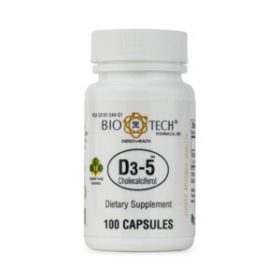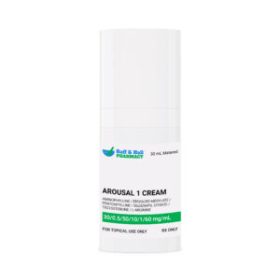Testosterone Vaginal Cream (30 mL)
A hormone cream, testosterone vaginal cream could help to alleviate symptoms of vaginal atrophy in postmenopausal women including dryness, itching, burning, and painful sex. Though more often connected with male biology, the cream includes testosterone, a hormone that could help women’s health by preserving libido, vaginal tissue integrity, and general sexual activity. This treatment may help relieve these menopausal symptoms by applying testosterone directly to the vaginal region.
To help get the medicine to the afflicted area, the cream can be given intravaginally using an applicator.
The cream contains testosterone, which is absorbed through the vaginal walls into the surrounding tissues. It binds to androgen receptors in the vaginal area, helping to improve tissue thickness, moisture levels, and blood flow. This action promotes lubrication, elasticity, and overall comfort, addressing symptoms caused by hormonal imbalance. While some absorption into the bloodstream occurs, the localized delivery helps concentrate its effects where needed most.
This cream should not be used by women with known allergies to testosterone or its components. It is also not recommended for individuals with hormone-sensitive cancers such as breast or uterine cancer. Women with liver disease, heart problems, or untreated thyroid disorders should consult a healthcare provider before use. Regular monitoring is advised during treatment, and proper application techniques should be followed to prevent overuse or accidental transfer to others.
Testosterone Vaginal Cream may interact with other hormone-based therapies, including estrogen or progesterone treatments. It can also influence medications that affect liver enzymes or hormonal balance. Care should be taken if combining it with blood thinners or corticosteroids. Discuss all ongoing treatments, supplements, and health conditions with your doctor before starting this medication to avoid potential interactions.
Some users may experience mild side effects such as irritation, redness, itching, or burning at the application site. In rare cases, systemic effects like mood swings, acne, or unwanted hair growth may occur due to absorption into the bloodstream. If symptoms like severe pelvic pain, swelling, or changes in menstrual cycles appear, medical advice should be sought. Proper usage as directed by a healthcare provider helps reduce the risk of adverse reactions.
Testosterone Vaginal Cream is not recommended during pregnancy or breastfeeding due to potential risks to the developing fetus or nursing infant. Testosterone can affect hormonal development and should be avoided unless clearly necessary and prescribed by a physician. Women who are pregnant, planning to conceive, or breastfeeding should consult their healthcare provider before using this treatment.
Store this medication at 68°F to 77°F (20°C to 25°C) and away from heat, moisture and light. Keep all medicine out of the reach of children. Throw away any unused medicine after the beyond use date. Do not flush unused medications or pour down a sink or drain.
- National Center for Biotechnology Information (NCBI). Menopause. In StatPearls. StatPearls Publishing. Retrieved from https://www.ncbi.nlm.nih.gov/books/NBK507826/– LinkOpens in New Tab
- Cleveland Clinic. (n.d.). Low Testosterone in Women. Retrieved from https://my.clevelandclinic.org/health/diseases/24897-low-testosterone-in-women





